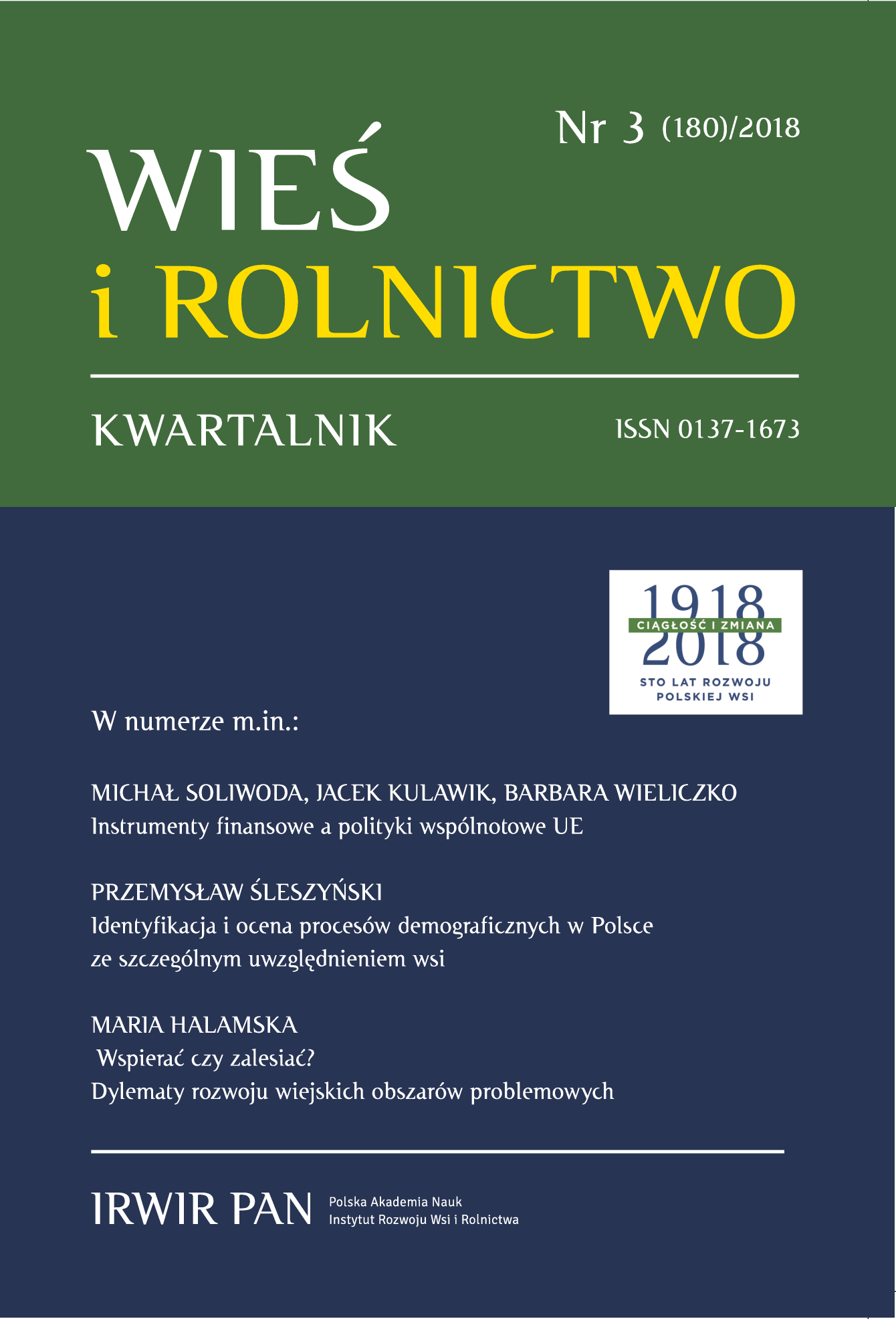Instytucjonalne uwarunkowania sprzedaży bezpośredniej żywności w Polsce
Institutional Preconditions of Direct Sales of Food Products in Poland
Author(s): Katarzyna Kokoszka, Małgorzata PinkSubject(s): Politics, Geography, Regional studies, Agriculture, Sociology, EU-Legislation
Published by: Instytut Rozwoju Wsi i Rolnictwa Polskiej Akademii Nauk
Keywords: direct sales; food; sustainable development; short-supply chains
Summary/Abstract: Thanks to legislative changes introduced in the period 2016–2017, Polish farmershave gained an opportunity of selling processed and unprocessed food products directlyto customers. The short food supply chains exist and are quite popular in many EuropeanUnion Member States and they contribute to the development of national food brands. Theyalso play a role in supporting the fostering of sustainable development by providing incometo farmers, good quality products to consumers and by bringing people closer to one another.This in turn reinforces social capital by engagement of public institutions in the promotionof the local area, and by supporting communication between the urban and rural areas.Last but not least, as European research suggests, such actions spread the productionof organic crops and reduce carbon footprint. The main aim of this paper is to diagnosethe determinants of direct food sales on the Polish market, to identify potential obstacles andsuggest a development strategy. An additional objective is to define direct sales in the contextof sustainable development assumptions as well as review best practices and methodsin this field based on an overview of academic literature and case studies. The diagnosisof the conditions was carried out by using SWOT/TOWS tool. Strengths, weaknesses,opportunities and threats were identified based on the results of focus group interviews. Asa result, some examples of the actions to support direct sales under a competitive strategyhave been proposed. The identified potential obstacles to the development of direct salesin terms of supply include a limited number of farmers involved and low level of their socialcapital. As for the obstacles in terms of demand, the main problems include price sensitivityand consumers’ shopping habits.
Journal: Wieś i Rolnictwo
- Issue Year: 180/2018
- Issue No: 3
- Page Range: 155-173
- Page Count: 19
- Language: Polish

